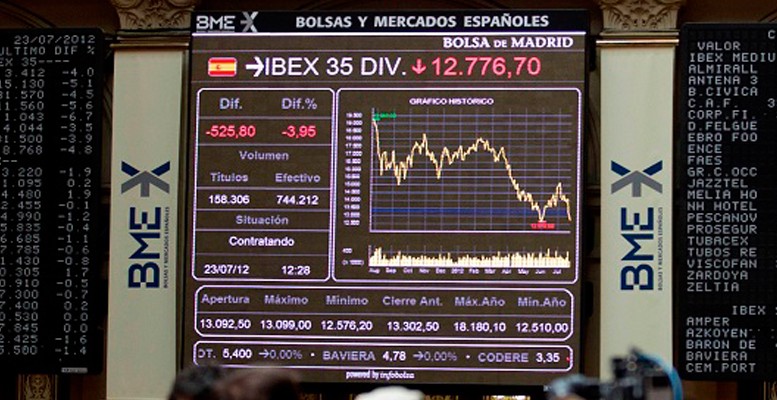Nearly 5 months of 2016 have passed and, after flirting with the 10,000 level, the Ibex 35 index closed at 8,700 last week, accumulating a 9% drop over the year so far. This shows that the stock market has become the most reliable expression of the lack of confidence in the world of money, although confidence is a concept which is too intangible and a mix of factors which are often not very solid. So much so that one analyst has said: “whoever says they understand the markets is probably overrated.”
The reality is that anything goes if you want to get on that erratic carousel, going backwards and forwards, with the almost sole objective of taking profits after even the smallest continuous recovery in the market. But this completely destroys the old idea that investing in the stock market was basically for the long term. Nowadays, its short cycles, microcycles, which have been imposed on us.
Today, the stock markets’ environment is affected by events which, in many cases, are inconsistent. Nevertheless, some analysts try to give importance to something which should remain as no more than an anecdote, like “the poor quality” of China’s last trade surplus or the fire in Alberta. Both subjects seem to have provided sufficient motives for a sharp sell-off in half of the world’s stock markets, including the Spanish bourse.
Thereafter, those who try to come up with a rational explanation for the stock market’s behaviour have an extensive list of factors. These include doubts over how solid the current economic recovery is, as well as the quality and sustainability of corporate results. And there is also the convenient inclusion in this mix of factors ranging from the weaknesses in the US expansion, which would show that the Fed’s plan to continue to gradually raise interest rates might not be realistic, to the slowdown in Brazil and China, more severe than initially discounted.
All this is a reason and a motive for distrust in:
-The continued destabilising factor that is Greece
-The OPEC meeting in June where there may be discussions about the existing disagreements which would lead to an increase in production. And while oil prices remain unstable, so will the stock markets.
-The unpredictable outcome of the Brexit referendum in the UK in June
-The general elections in Spain in June
-The US elections in November
-The emerging countries
-The herd instinct
Nevertheless, the increased aversion to risk and the lack of confidence continues and any argument works to justify this. The problem is that it’s not easy to reduce or get rid of this in a world where there are real or fictitious uncertainties.





